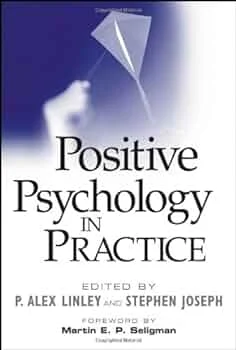IMAGINE A SCIENCE that is as interested in health and well-being as disease and disorder. A science that strives to promote flourishing and fulfillment at each of the individual, group, and social levels. A science that studies what makes life worth living. A science that holds meaningful lessons for all who choose to consider it. A science that speaks to us personally, as practitioners, as much as it does to the people for whom we practice.
This is the science of positive psychology in practice and the subject matter of this volume. Positive psychology is at the stage where solid theoretical foundations are being laid, experimental results are building, and attention is beginning to turn to the applications of this knowledge in real-world contexts. However, there is no single resource to which psychologists may turn that provides them with a complete package of positive psychological theory, research, and application.
This volume was designed to meet that need. Positive psychology constitutes much of what the best professional psychologists already do in practice—however, until now, this language of learned experience has not been named, recognized, or celebrated. Our experience in talking to people about the practice of positive psychology is that it gives a voice to what they have always done, but never quite understood, or recognized, or named. Now positive psychology in practice can provide a language and identity that shape and define this implicit understanding.
Three strands are interwoven throughout the fabric of this volume: theory, research, and application. We asked our contributors to dedicate their efforts to producing a work that would define the emerging field of positive psychology in practice for the next five years. They have excelled themselves in doing so. Throughout the volume, you will find comprehensive reviews of the literature that are tailored toward questions of research and application. What is the state of current research in the field? What are the implications of this research for practice? What applied research is required that will best inform future practice? These are the questions that each of our contributors has striven to answer.
The chapters of this volume serve as reviews of the theory and evidence, particularly as relevant to applications, but critically, they also provide concrete recommendations for applications and for the future research that will be necessary to underpin and guide these applications. We are aware that the relationship between positive psychology and humanistic psychology has been a subject of debate. To be sure, there are differences between positive psychology and humanistic psychology, but we believe that these differences are far outweighed by their similarities.
Hence, we have worked hard in this volume to speak to readers from the traditions of both positive psychology and humanistic psychology. Our knowledge will advance all the more quickly if we are able to acknowledge similarities, constructively explore our differences, and work together in the joint pursuit of our common goals.
But overall, it is up to you, as the readers, to judge this. We will judge the extent to which we have achieved our objectives by the measure of how much this volume contributes to the advancement of positive psychology in practice, with the goal of more fulfilled lives for all. Finally, we are reminded that positive psychology is not only about our academic and professional practice and applications for other people but also tells us about how we can lead our own personal lives. May this volume inspire and help you in all these pursuits.
A NOTE TO THE READER
To guide you to further recommended reading in each of the topic areas, we have asked our authors to indicate a few key readings from their chapter reference lists. These key readings are indicated in each chapter reference list by asterisks. We hope that these key references will provide a valuable and informative guide to readers wishing to pursue their interests in the topic area.
P. ALEX LINLEY STEPHEN JOSEPH
January 2004



.jpeg)
.jpeg)
.jpeg)
0 Comments